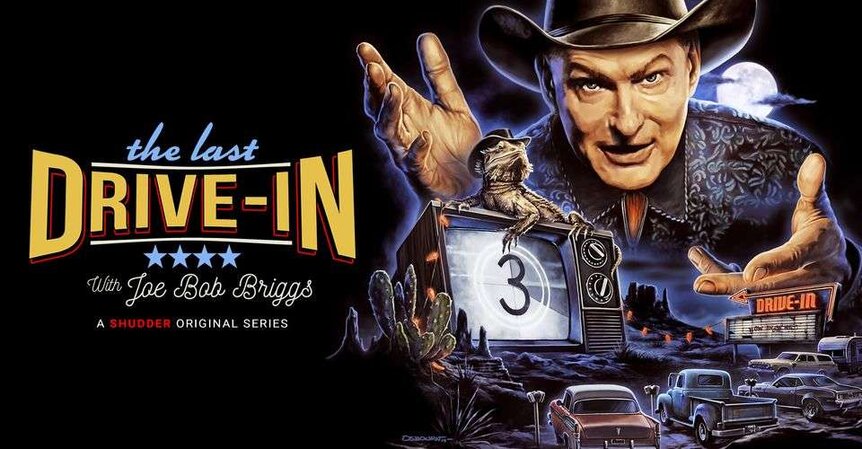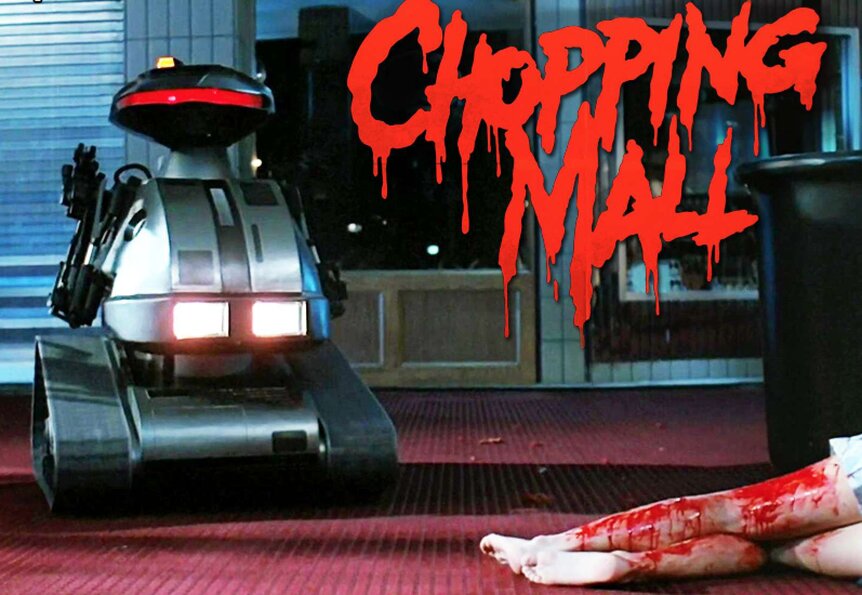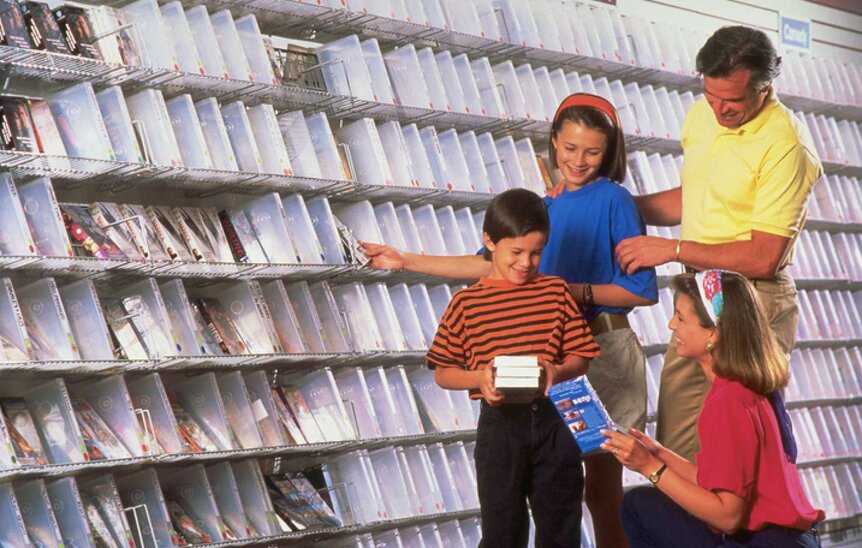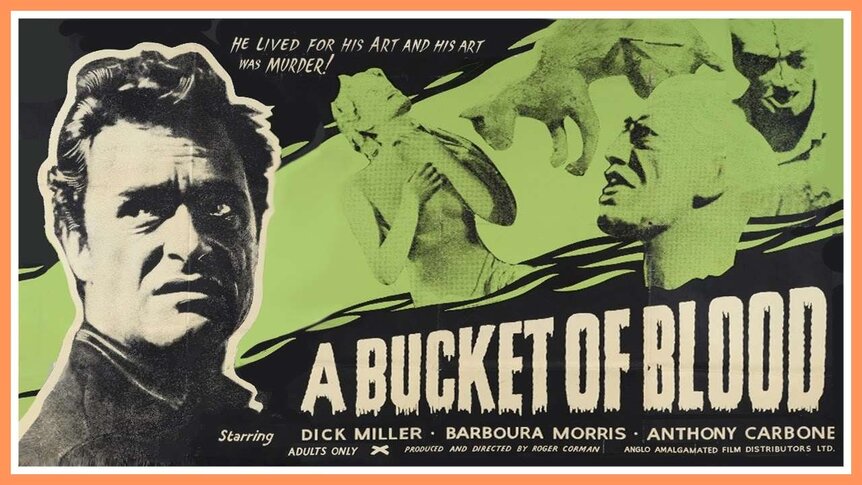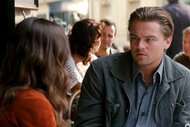Create a free profile to get unlimited access to exclusive videos, sweepstakes, and more!
The Last Drive-In Show host Joe Bob Briggs says the time is right for 'bubble gum horror'
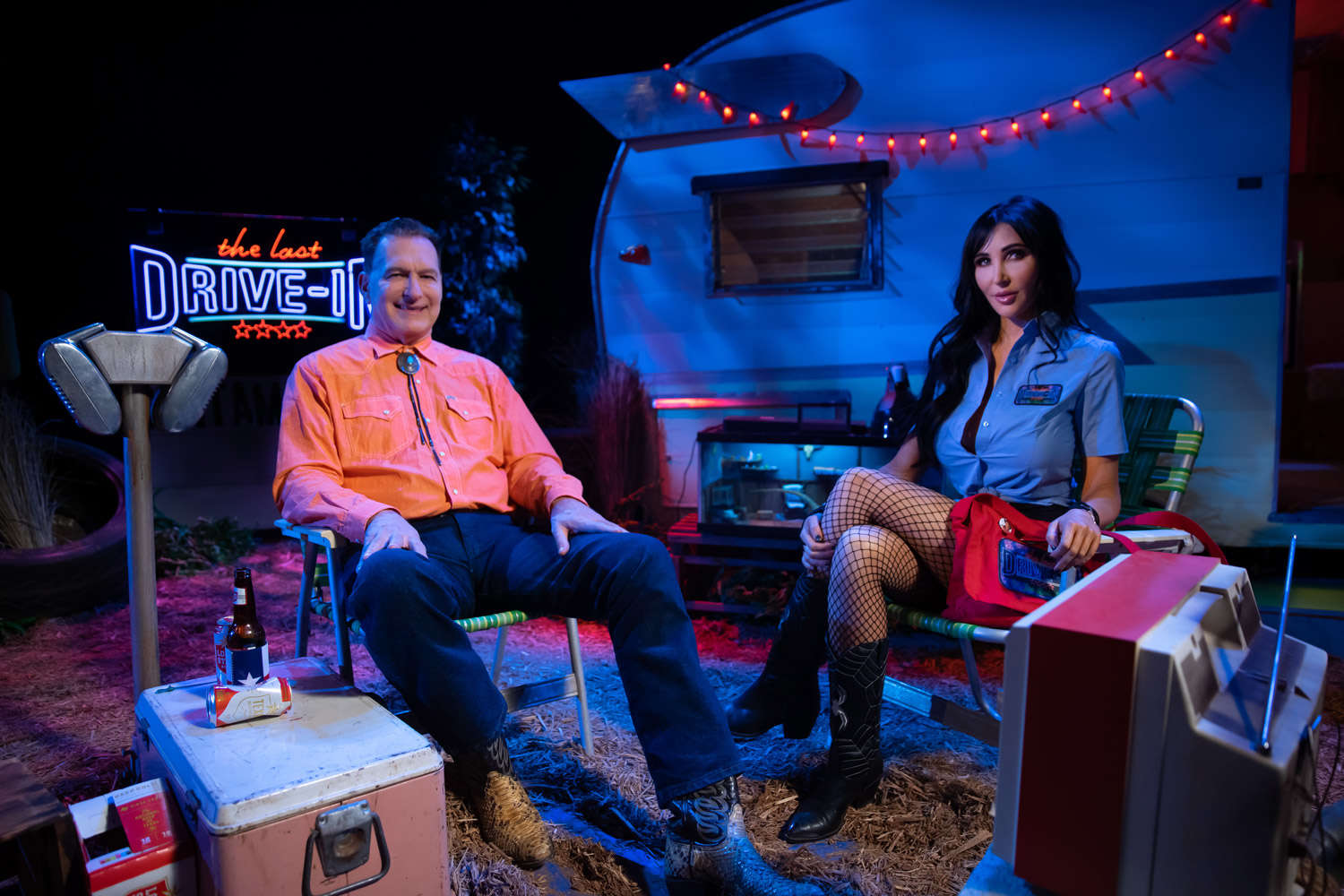
Self-proclaimed "redneck raconteur" and horror host Joe Bob Briggs has been praising the virtues of B-movie grindhouse flicks since back in his early days at The Movie Channel's Joe Bob's Drive-In Theater and TNT's late-night MonsterVision.
An expert in all things lurid and low-budget, Briggs has been a small-screen fixture for over 30 years. The Last Drive-In, his new series on AMC's horror-centric streaming platform Shudder, picks up right where his previous '90s-era show left off; Briggs continues to be a treasure trove of cult movie trivia in multiple geeky genres, providing commentary and little-known production facts on his weekly Friday night double-feature billing.
The Last Drive-In launched its second season on April 24 with a pair of cult favorites: Chopping Mall (1986) and Bloodsucking Freaks (1976). And most recently, on June 12, it delved into the horror anthology that spotlights Briggs' cameo, Scare Package (2019), and a campy monster pig flick, Hogzilla (2007).
Tonight's season finale features special guests Doug Bradley and Ashley Laurence of Clive Barker's Hellraiser!
Briggs spoke to SYFY WIRE on the dynamics of his new Shudder series, his favorite horror films to remake, the possible resurrection of drive-in theaters, how the spookiest genre has evolved over the decades, and the enduring legacy of scary movies that are so bad they're good!
What brought you back to TV after two decades?
Matt Manjourides and Austin Jennings were the producer and director of the old show, and they came to me and asked if they could pitch a show to Shudder. I said sure, even though for 17 years, nearly once a year, someone had come to me, a producer or the networks, and asked if I wanted to do another series. I'd say yes, then I'd never hear from them again. In this case, they actually did set up a meeting with Shudder, and they planned a marathon and it was a success. Even though I was surprised they wanted to do a version of a show I'd finished 17 years earlier.
The reason it seems more dense than before is that there's more information available. When I started talking about these movies years ago, we often didn't know who'd made them. [Laughs.] It was very difficult to tell where they came from, who produced them, and in some cases, we couldn't find the director or even know if it was a real name. We've got to be better because you make a single mistake now and 10,000 people jump on you the next day on the internet. And you should never give me a show with no time limit, because I will continue to talk.
Where is that cool trailer park set, and where is the show filmed?
We do it in Dallas, and the reason for that is because the MonsterVision show on TNT was done in Dallas and when I left I told them if I ever had another show they'd all be rehired. So 17 years later, we rehired the crew. [Laughs.] It's not at the exact same stage and studio, but we've got the same great group of guys.
In many ways, your brand of humor at MonsterVision predated the dry style of internet humor seen today. Was it reinvigorating to dive back into this new unfiltered format?
Well, the show always had three or four different elements. I usually have a rant at the beginning of the show, then we do a synopsis and drive-in totals for the movie. Then I interrupt the film and talk about the various aspects of it while it's running. Then we'd always read mail at the end. Those things are being done pretty much the same way they were done before, but everything became more intense due to the way social media works.
I mean, who reads mail? There is no mail anymore. Yet we have a mail girl who brings the mail. What she's really reading are essential social media posts.
I do like the format, and I like streaming because we're not limited in what we can do. We can do a short segment, a long segment, a serious segment, or a funny segment. But I do try to make it all relate back to the movie. I don't like to do skits and stunts at the break, I've never done that. The material has to rise out of the movie, no matter how far off the subject I get.
You often talk about the prominent themes of theology in horror films. Where does your knowledge of the subject come from, and why do you think religion is so prevalent in the genre?
I was raised in the Baptist church but left the Baptist church. My parents and my family were all steeped in the scriptures. Horror movies are naturally based on religious concepts.
There's a whole category of religious horror. William Peter Blatty, who wrote The Exorcist, was a hardcore Catholic, and everything he wrote had these deep theological meanings. For one of the shows I was talking about the "Lake of Fire" as being Hell, and what Hell is in movies, and what the Catholics and Protestants think it is. So horror sort of lends itself to talking about religion, because it's talking about life and death all the time.
Are cheesy horror films a curse or a catharsis for troubled times like what we're witnessing today?
In general, people watch more horror films when they feel good. You don't watch a film about disease when you have a disease. In bad times, people tend to watch the more lightweight horror films. The opening film we had for the second season was Chopping Mall. Nobody is gonna get that bent out of shape over Chopping Mall. It's sort of a bubble gum horror film. That's the kind of film people want to watch when they lost their job or are going through a hard spell.
Do you have any streaming favorites you've rediscovered during quarantine?
I had never watched all the Hatchet films. [Laughs.] So I did watch all four Hatchet films recently. I wanted to see what the slasher has become in the post-2000s era. And I have to say I enjoyed them!
In a post-COVID-19 world, could this usher in a renaissance of the old-fashioned American drive-in movie theater?
It should be a renaissance of drive-in theaters. The first week of the lockdowns, many drive-ins remained open because it was easy for them to do social distancing. Then someone came along and shut a lot of them down for being non-essential businesses. Which I thought was cruel and an assault on the arts. Nobody ever thinks the arts are essential. But I think some of them have reopened. Drive-ins are the ultimate solution for social distancing in theaters, and I hope it does create a resurgence. They've never totally gone away, but they've ebbed and flowed in popularity. They tend to be in more remote places where the land is cheap.
The last surviving Blockbuster Video is in Bend, Oregon. What do you miss most about the heyday of the great video stores and VHS emporiums?
Well, it was the boxes and holding it in your hand and being able to look at all the movies in one place, like a bookstore. I did a show at the Hollywood Theater in Portland last fall and it also has one of the last surviving private video and DVD stores, and it was just amazing to be in there. They had like a Ray Dennis Steckler section. He was a low-budget exploitation filmmaker. [Laughs.]
That's how narrow their categories were. It was wonderful to be in there and see that someone still had one going on. And I've read articles about the last Blockbuster in Oregon. And apparently the guy's holding out, right?
How do you see horror films evolving from the classic slasher movies of the late '70s and '80s such as Halloween and Friday the 13th, to today's takes on the genre like Get Out and The Witch, which are often considered to be a bit more sophisticated?
When I first started reviewing exploitation films in the early '80s, horror was considered disposable trash. It was not really considered a legitimate genre. You'd have the occasional Hollywood film that was based on a literary property like The Exorcist or The Omen or The Changeling. Even the big studios were contentious with horror.
After the remakes started in the early 2000s, horror became a genre right up there with comedy and drama and action. Who could have predicted that a horror film, The Shape of Water, would win the Academy Award for Best Picture? And not just a horror film, a rubber-suited monster film! [Laughs.]
And the remake of Stephen King's It. I don't know how many hundreds of millions of dollars it made, but it was a lot. That creates an atmosphere that legitimizes horror. So it's night and day from when I started writing. They were really outlaw films back then. And today, almost every serious director has some connection to horror, even if he just made one film or put horror elements in their movie, like Tarantino. Horror has entered the mainstream.
If you had unlimited creative power, what horror films would you give a modern remake?
I'd say Roger Corman's satirical movie, A Bucket of Blood. It was set in the beatnik world in 1959, so you'd have to update the setting for it. It's one of my favorite films and I don't understand why it hasn't gotten more love. And maybe also Roger Corman's Edgar Allan Poe films. We should revisit Poe every so often and see what can be done with his works. There's a lot of love for Lovecraft, but not so much for Poe right now.
Joe Bob Briggs' The Last Drive-In airs every Friday at 9PM ET/ 6PM PT on AMC's Shudder.
